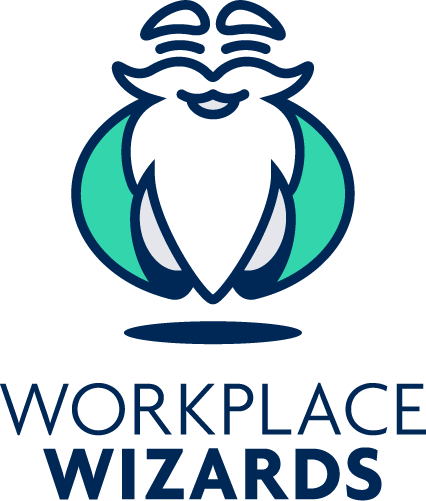In today’s fast-paced business world, the idea of having a rigid, unchanging workplace contract just doesn’t cut it anymore. Organisations need to be nimble, ready to pivot and adapt to new technologies, legislative changes and the evolution of face of business operations.
So, it’s essential that employment contracts are not a ‘one and done’ affair. Periodic reviews and adjustments are essential to ensure that both the employer and employees can adapt to changes and, most importantly, have clear and transparent communication about roles, responsibilities and expectations.
And what’s better than a sequel? Building on our previous discussion this blog is exploring 7more reasons you should update your employment contracts.
We’re adding new insights and expanding the conversation to show you how dynamic contracts are key to creating a thriving, modern workplace.
1. Unplugging After Hours
New right to disconnect laws (kicking into effect on 26 August 2024 for all non-small business) grant employees the legal right to disengage from work communications outside of their official working hours.
Employment contracts should be updated to reflect these changes, setting clear boundaries on expected work hours to prevent miscommunication and ensure employees can maintain a healthy work-life balance.
For a summary of the right to disconnect legislation, click here.
2. Fair Pay
Recent changes in wage regulations and minimum wage adjustments mean that employment contracts need to be reviewed to ensure compliance. This includes updating pay rates, overtime policies, and ensuring that all compensations are fair and within the legal requirements, protecting both the employer and the employee from potential disputes.
This year’s employment news headlines have been somewhat of a revolving door of many businesses – big and small – facing large penalties for the underpayment of workers. This illustrates not only the gravity of wage compliance, but just how prevalent the issue of non-compliance is.
For a summary of recent changes to minimum wage click here.
3. Casual Conversion
New legislative changes, about to take effect at the end of this month, will redefine casual employment and made it easier for casual employees to convert to permanent roles after a certain period.
Contracts should be revised to inform employees of their rights to request conversion and reflect the new definitions, providing transparency and clarify for the workforce and the business.
For a summary of recent changes to casual employment, click here.
4. Mindful Focus
The importance of mental health in the workplace has never been more evident, with increasing discussions centred around the importance of employee wellbeing for overall organisational health. Including provisions in employment contracts for mental health support, such as access to counselling services and mental health days, would be a proactive step that demonstrates the organisation’s commitment to employee well-being and can go a long way in helping create a supportive work environment.
For more, check out our blog on mental health in the workplace here.
5. Championing Diversity
Diversity and inclusion are now at the forefront of workplace culture. Employment contracts should reflect a company’s commitment to these values, perhaps outlining policies on non-discrimination, diversity training, and support for any minority groups – things that can help create a respectful and inclusive workplace for all.
6. Training and Development
With the fast-paced evolution of skills required in the workplace, contracts should include provisions for continuous training and development. Offering opportunities for up-skilling and re-skilling ensures employees remain competitive and proficient in their roles, benefiting both the individual and the organisation.
Check out our suite of ready to customise training packages that help assist workplaces looking to up-skill their workforce in critical areas of workplace function – such as leadership, communication, navigating conflict and more.
7. Embracing the Future of Tech
With rapid technological advancements, employment contracts need to be proactive and address the use of new tools and platforms. This includes provisions on data privacy, intellectual property rights related to digital creations, and guidelines for the appropriate use of company technology. This can help make sure that employees are equipped and informed to work with AI and other emerging technologies, as well as the risks that come with the advancement of tech.
What's Next
To ensure your employment contracts are enforceable, legally sound and have covered all necessary bases, it’s important that they’re well drafted and adequately communicated to your employees.
While templates or a ‘copy and paste’ job might seem like the easiest and most efficient method to creating an employment contract, it can leave you open for disputes and difficulties in the long run.
To ensure you’ve got everything you need and want in there, we recommend having a third party take helm of drafting employment contracts for you – not only does it ensure peace of mind when you’ve got experts taking charge, but it can also save you a lot of time and effort.
Workplace Wizards’ employment law consultants and lawyers have years of experience in reviewing, drafting, and developing comprehensive, legally defensible, employment contracts. We can help ensure that employment contracts are up to date and meet their legal and modern award obligations, and can also make sure that the employment contract reflects the business’s best interests regarding confidentiality, disciplinary procedures, and so on.
For a quick, no-obligation consultation about how we can help your business with this matter, call Workplace Wizards today on 03 9087 6949 today or email at support@workplacewizards.com.au. Our team of Melbourne based employment contract lawyers and consultants can answer your queries, explain the particulars of employment contracts, and discuss what actions your business could be taking.




0 Comments Leave a comment
Comments are closed.